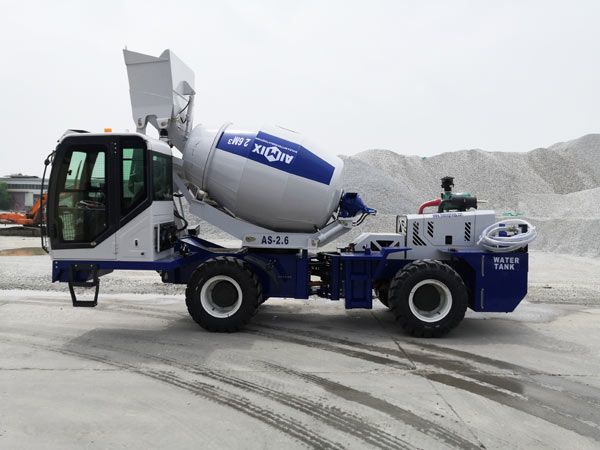Concrete mixers are essential tools in the construction industry. In Nigeria, the pricing of these machines is influenced by various factors. One significant factor is the role of imports. This article explores how imports affect concrete mixer prices, focusing on self-loading mixers and their market impact.
Nigeria relies heavily on imported construction equipment. Concrete mixers are no exception. Imported mixers provide various options for buyers but also introduce pricing complexities. Understanding this dynamic is crucial for making informed purchasing decisions.

Imports offer a wider range of options and advanced technologies. Many high-quality mixers are not manufactured locally. Importing these machines allows Nigerian builders to access state-of-the-art equipment.
Importing concrete mixers can lead to fluctuating prices. Several factors, such as import duties, shipping costs, and exchange rates, influence these fluctuations. Buyers need to consider these elements when evaluating prices.
Import duties and taxes can significantly affect the concrete mixer price in Nigeria. Higher duties increase the final cost of concrete mixers. Buyers should be aware of these additional expenses when budgeting for equipment.
Exchange rates play a crucial role in import pricing. Fluctuations in currency value can lead to price changes. When the Naira weakens, imported mixers become more expensive, impacting overall costs.
Shipping and logistics also add to the cost of imported mixers. Long shipping routes and handling fees contribute to the final price. Buyers should factor in these costs when comparing prices.
Self-loading concrete mixers are gaining popularity in Nigeria. These mixers offer automation and efficiency, making them attractive to buyers. Understanding their pricing and market availability is essential for informed purchasing.

Self-loading mixers automate mixing and loading processes. They reduce labor costs and improve efficiency. Despite higher initial costs, the long-term savings make the self loading concrete mixer a viable option for many projects.
Buyers need strategies to manage import-related costs effectively. Research, negotiation, and timing are critical tactics. These approaches help minimize expenses and maximize investment returns.
Research helps buyers understand market trends and price variations. Comparing prices across different suppliers and models is crucial. This process enables informed decisions and potential cost savings.
Effective negotiation can lead to better deals. Buyers should engage suppliers in discussions and negotiate terms. Successful negotiation can result in improved purchasing conditions and reduced costs.
Imports play a vital role in shaping concrete mixer prices in Nigeria. By considering factors like import duties, exchange rates, and shipping costs, buyers can make informed decisions. Prioritizing self-loading mixers and adopting strategic approaches enhance cost-effectiveness. These practices support successful project outcomes and continued growth in Nigeria's construction industry.